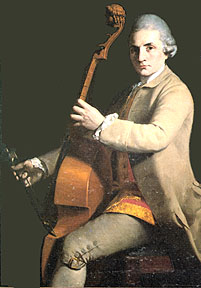Posts Tagged ‘Viola da Gamba Technique’
Viola da Gamba (Viol) – Grounding in the Alexander Technique (Musicians)(Pain)(Strain)(Injuries)(Posture)(Albuquerque)
This ebook, An Alexander Technique Approach to Viola da Gamba (Viol) Technique, is published on this website in a PDF format. It is very detailed and practical, and it will give you the physical tools you need to take the limits off of your ability to create the accurate viol technique you want without sacrificing your body.
This ebook is also for sale on all AMAZON websites in a KINDLE format.
Located in Albuquerque, New Mexico, U.S.A. (MOVEMENT THERAPY)
Alexander Technique is focused very much on the viola da gamba player finding UP in her body. UP means that there is an upward flow, upward direction, an upward vector in the viol player’s body. This means that the viola da gamba player is ordering the head to lead the spine upward, so that all of the disks and vertebrae are decompressed, so the viol player can have superb posture and technique organization.
Since many viola da gamba players are pulling downward in their bodies, then it is primarily the Alexander Technique teacher’s job to help these downward pulling viol players organize their bodies with an upward flow. But there is an equal and opposite and just as important component to the organization of the body in the Alexander Technique.
It is called GROUNDING, not down. GROUNDING is the body releasing/lengthening in opposite directions muscularly, so that the body is fully expanded in all directions. The reason for this is twofold.
When a viola da gamba player is grounded, then the viol player is feeling the full support of the chair and the floor, feet fully on the ground.
The second reason for grounding is the downward flow in the legs from the hip joints downward, creates space in the hip joints, knees, and ankles.
When there isn’t a down flow in a body with a head leading the spine into lengthening on the viola da gamba player, it means that the viol player is playing with bunched up muscles, especially in the thighs. The effect of the locked up thigh muscles on the body of the viola da gamba player, is to pull the legs up into the pelvis/torso.
Physically and energetically it is as if you are trying to pull yourself up off of the chair and/or your feet off of the floor, and this means you are playing the viola da gamba without a base. What do I mean?
So many viola da gamba players are only aware of their arms and hands, but do not have an awareness that the shoulders float on and are supported by the torso. The torso is supported by the pelvis, and the pelvis is supported by the legs. Even sitting, it is the musculature of the upper legs – quadriceps, biceps femoris, and psoas, that helps balance the torso upright on the chair.
When this lower body musculature is at ease, releasing to the chair and the floor or the feet in standing, then you are supported from the ground up, but there is another very very important Alexander Technique principle here at work. When you play the viola da gamba it should be with the least amount of muscular work, a balanced body with great posture, and with a high dynamic (high energy).
When you sit or stand for hours playing the viola da gamba with unnecessary tension in your legs, then you are doing totally unnecessary work in your body as you play the viol. Since, in the Alexander Technique, we view technique as what the whole body does when you play the viola da gamba, then locked legs are compromising your viol technique. This excess tension is exhausting you and keeping you from experiencing yourself as supported from the ground up. Simply, you are not grounded.
One final point, whatever you do in your body, no matter how not directly connected to the specific technique of the viola da gamba, it will have an effect on the tone, accuracy, and effort necessary for you to play, for good or bad.
